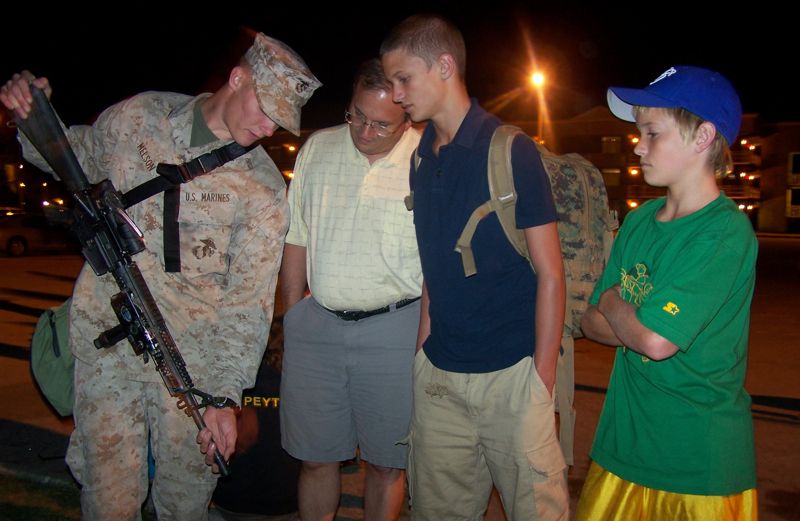It’s not just soldiers who sacrifice during times of deployment. The families they leave behind also face hardships.
Some of those most affected are kids, and not only the sons and daughters of deployed soldiers, although they are the ones most directly impacted. Deployment can also affect younger brothers and sisters when a soldier is away at war. I know because I watched our two youngest sons struggle while their big brother spent two tours in Iraq.
I recently had the opportunity to discuss these issues with Gregg Hunter, CEO of Christian Camp & Conference Association. He reminded me that in many ways, kids are much more involved with combat than in days past. With previous generations, the primary means of communication between soldiers and their families was letters. This type of interaction was much less immediate and provided a filter between home and the frontlines.
Now, with the Internet and video chatting, war has come home. A soldier can literally tuck his kids into bed right before going out on a mission.
With our own children, it wasn’t uncommon for our military son to call his younger brothers while he was on deployment. These calls helped them all cope with the stress they were feeling. Fortunately, our kids’ teachers understood how important it was for them to have this connection with their brother and allowed our sons to carry cell phones and accept calls from their brother during school hours.
Kids who face the deployment of someone they love have different life experiences. They often struggle with feeling disconnected from their peer group, and that can make it more difficult for them to make friends. Those whose parents are active duty military also deal with moving every few years.
It was these issues that led numerous summer camps to offer programs for military kids. I listed several of these in a previous post on Camps for Military Kids and Families. But there are also things we can do in the communities where many of these families live:
- Reach out and give these kids an opportunity to share what they’re feeling. Be the listening ear that helps them process their emotions.
- Look for opportunities to fill in for a deployed soldier by doing things with these kids. For example, many of our son’s friends reached out to our boys and filled in as big brothers.
- Help by giving older kids something to do. Often military families experience reduced financial circumstances during deployment. Finding part-time job opportunities for the kids can be a big help.
- Consider sponsoring a child’s experience at a camp specifically designed to meet their needs.
Now I’d love to hear from you. How have those in your community reached out to military kids?





